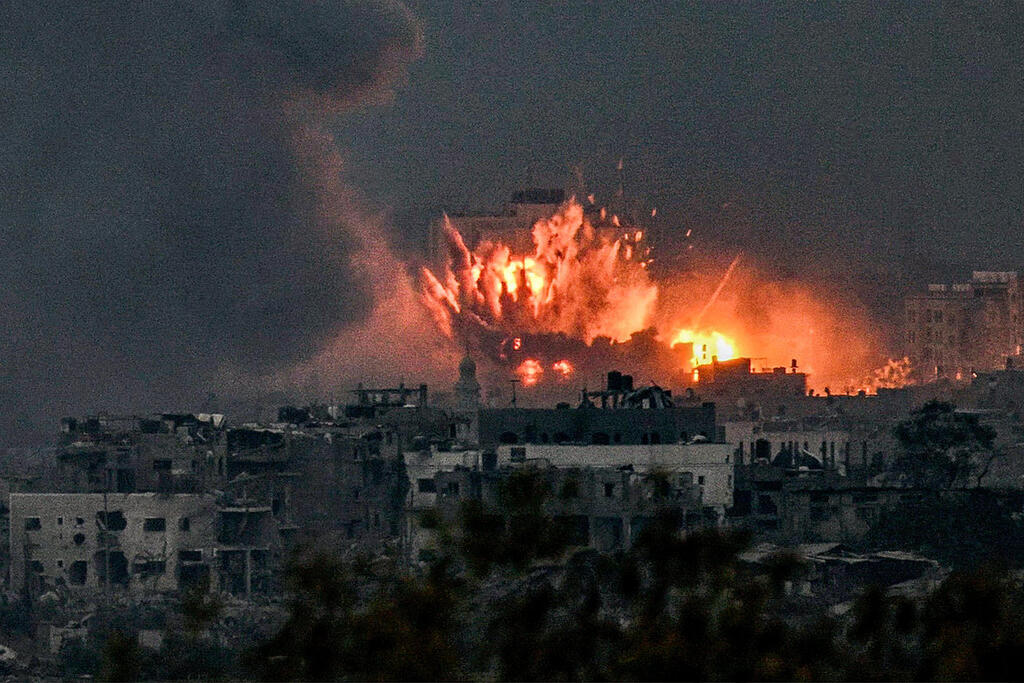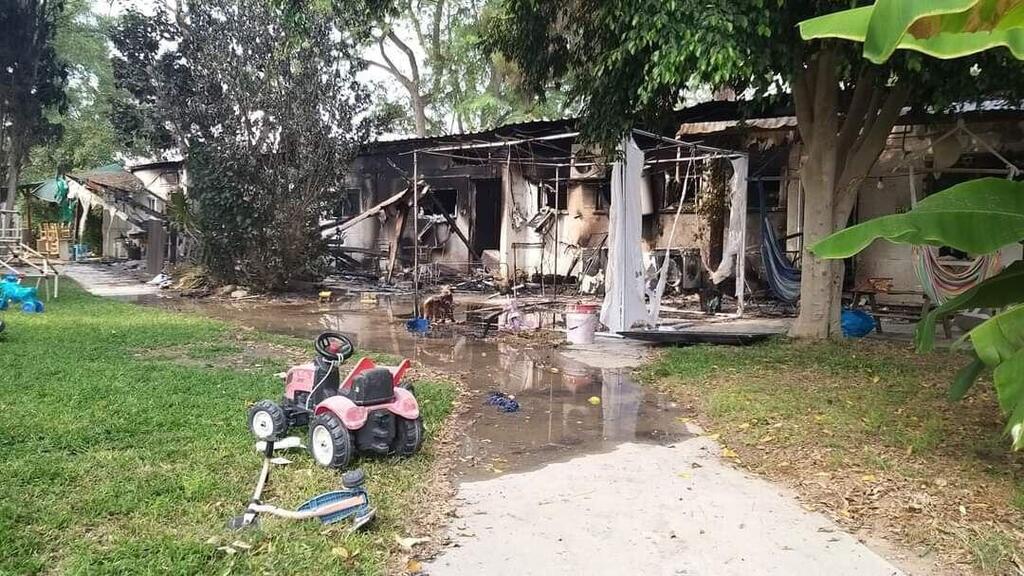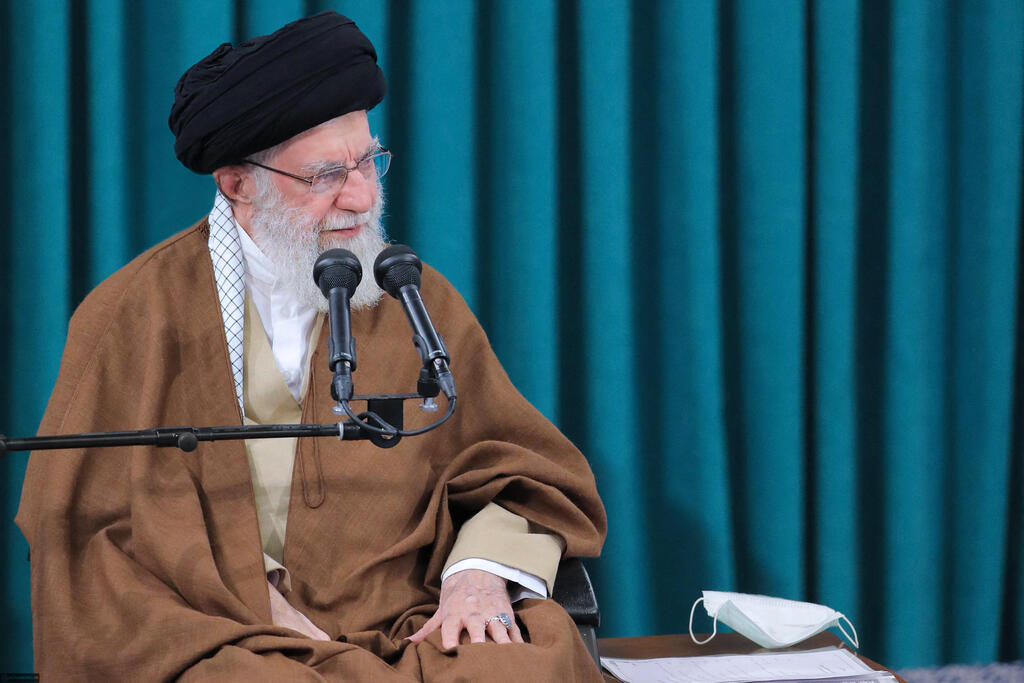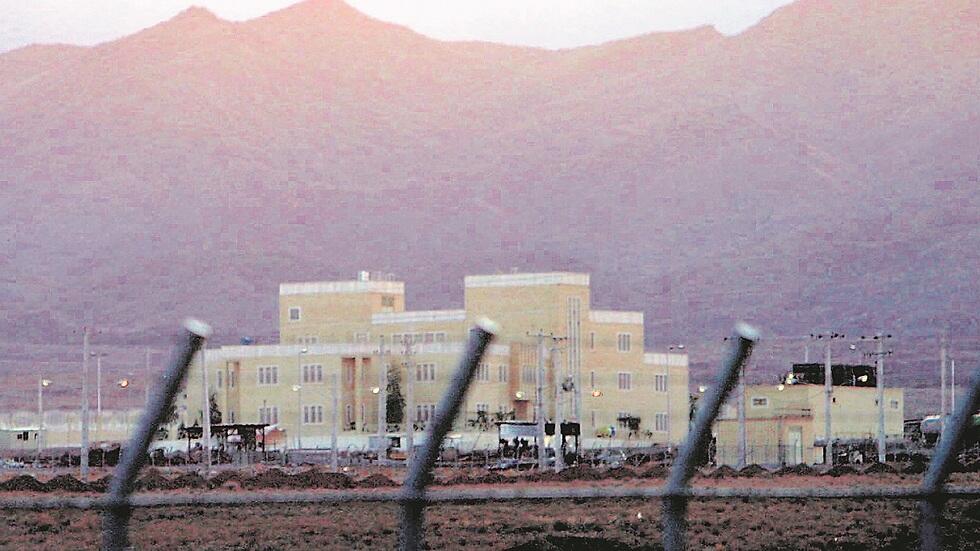Getting your Trinity Audio player ready...
The medium was the message. The bestiality displayed by Hamas during its invasion of Israel was not the result of some terrorists going berserk. It was a calculated tactic to shock the Israeli public and convince it that its time has come. The attack was designed as a microcosm of what is in store for Israelis if they continue to “occupy” Arab land— i.e. the one stretching “from the [Jordan] River to the [Mediterranean] Sea.”
Read more:
However, in hindsight, it could be said that Hamas's wanton savagery was a fatal strategic mistake and will bring its destruction. It is all but certain that the growing divisions within the Israeli society were critical in the timing of the Hamas onslaught. Hamas probably assessed that the insurmountable political fractures would deprive the Netanyahu government of the broad support needed to launch a large-scale reprisal ground attack. Yet the monstrosity of the Hamas attack changed all that in a heartbeat.
Indeed, the greater was Hamas’ operational achievement and the more barbaric its execution the sooner were the splits within Israel patched up. A wall-to-wall consensus quickly emerged across the Israeli (Jewish) political spectrum that “Never Again“ was now and that Hamas must be eliminated. Little wonder that the response to the IDF’s emergency mobilization call, issued in the attack’s wake, was total and immediate. In opting for organized butchery and unspeakable atrocities as a deliberate and preferred modus operandi Hamas thus committed an irreversible strategic error.
Moreover, Hamas’ failure was not limited to underestimating the effect of its barbarity on Israeli society’s snap-back capacity. It also misjudged the response of Israel’s allies, particularly the United States. The unprecedented support Israel is currently enjoying among the Biden administration and Western European countries is linked directly to the depravity of the Hamas attack.
Suddenly, there seems to be an almost universal recognition that the fight is not only between Israel and Hamas, but that Jihadists pose a Nazi-type threat to world order and the security of the civilized world.
This external support is undoubtedly among the reasons Hezbollah has so far refrained from entering the fight en masse which was likely planned as the other shoe to drop in the Hamas original scheme. In other words, Hamas’ ghastliness backfired paving the way for Israel to operate under an American strategic umbrella which essentially provides the IDF a free hand to pursue this terrorist army’s demise.
The third Hamas mistake concerns the impact of the current war on the Israeli defense doctrine. Israel has long ago understood that its Iron Dome missile defense system, as advanced and effective as it is, provided only partial protection from Hamas rockets. This is especially after the Hamas terrorist army had switched to a tactic of massive salvoes designed to saturate the system’s interception capacity.
However, so long as these terrorists were content with just firing rockets indiscriminately against its cities, Israel could “live” with the threat. Israel chose to put its confidence in the performance of its missile defenses and the safe rooms and shelters it built in vulnerable communities as a way to minimize civilian casualties and thus address the Hamas threat.
With the introduction of the Iron Dome system, Israel has become increasingly reliant on defense rather than its traditional offensive doctrine. Even though every fighting round in Gaza proved that the Israel Air Force (IAF) alone could not effectively suppress the terrorists’ rocket fire, the IDF refrained from launching a ground operation to destroy the batteries.
The calculation apparently was that, given Israel’s active and passive defenses, the barrages would inflict fewer casualties on Israelis than a ground operation. Moreover, since Hamas is notorious for placing its rocket launchers among the civilian population there was no appetite among the IDF’s brass to order massive counter-force attacks for fear of causing mass casualties among Gaza’s noncombatants and bearing the brunt of an international outcry.
5 View gallery
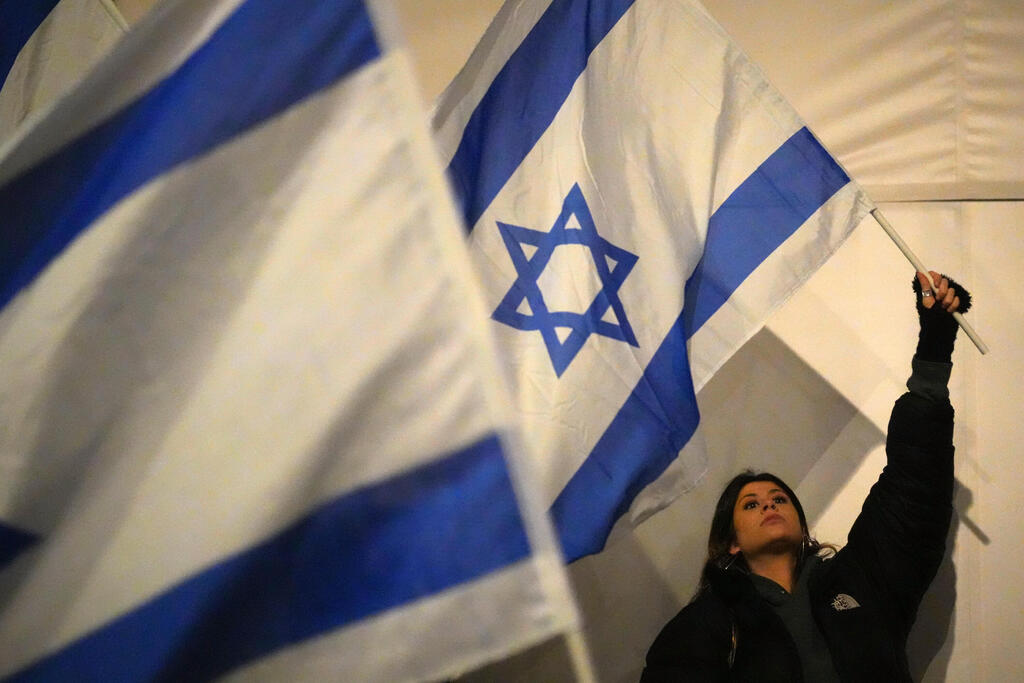

A pro-Israel rally in London in wake of Hamas attack
(Photo: Carl Court/Getty Images)
As a fallout of the Hamas attack, this underlying assumption and Israel’s self-imposed restraint were put to pasture. In fact, this time Hamas sought to coordinate its capability to fire thousands of rockets in a short time span with a sizable ground invasion. The incessant rocket fire was meant to provide cover for Hamas launching its version of a full-scale offensive. The new tactic has made it clear to Israel that tolerating repeated rounds of fighting with Gaza terrorists— which operationally meant limiting its response to IAF air strikes—was a profound mistake and was no longer possible or acceptable. Instead, Israel is now forced to initiate a large-scale ground operation to eradicate the Hamas threat.
Hamas may have expected this Israeli response betting on other fronts to ignite and take the pressure off it— e.g. force Israel to limit its ground operation even if one was launched due to heavy fighting on the northern front—but the way things stand right now it may have badly miscalculated. (Instead, Hezbollah will likely brag that its sporadic harassment activity along the northern border forced the IDF to maintain large forces there which would otherwise be available to operate against Gaza.) One thing is certain, in the aftermath of the debacle there is little doubt that the IDF will revert to an offensive strategy.
Yet it is important to note that the worse Hamas’ mistakes are and the greater its ensuing predicament the more attention must be paid to possible efforts by its allies to extricate it from its plight. Two such alternative futures come to mind.
First, Hezbollah ( with the active backing of Iran and possibly Syria) will act to prevent Israel from eliminating Hamas. The major incentive behind any such intervention would be to deny Israel a decisive victory against Hamas which would bolster the IDF and more importantly allow Israel to turn its attention to dealing with its northern front.
Consequently, the closer the IDF is to achieving its goals in Gaza the higher the likelihood of Hezbollah launching a full-scale attack on Israel. While the U.S. is trying hard to deter such a development, this scenario may still take place given that Iran's Supreme Leader Ayatollah Ali Khamenei has cast the conflict in ideological-religious terms and as a “symbol of the power of Islam.” Iran and its “resistance forces” will endeavor to prevent a defeat for Islam which the destruction of Hamas will clearly denote.
Under this scenario attacks on U.S. forces in the region, including attempts to hit the aircraft carrier the Gerald R. Ford which was rushed to the eastern Mediterranean and other components of its task force (as well as the aircraft carrier the USS Dwight D. Eisenhower which is now on its way to the theater and its associated warships) are likely.
Second, It must be considered that the unfolding Israel-Hamas war is either by default or by design a diversion that would allow Iran to breakout to the bomb. Even if the Hamas aggression was not orchestrated by Iran, some mullahs must now argue that the time is ripe to dash to the bomb.
They probably cite Israel’s surprising military weakness (possibly alluding to the leader of Hezbollah Hassan Nasrallah’s 2019 boast that he is “confident of victory” and that “Israel is weaker than a spider web,”) the IDF’s preoccupation with Gaza and the West Bank, Hezbollah’s deterrent potential and the strategic pact with Russia as conditions favoring such a step.
Accordingly, Iran should seize the opportunity and seek to emerge from this conflict secured from attack and as having decisively tilted the global balance of powers in favor of the “resistance forces.”
On the other hand, in theory, Israel and the U.S. could decide to seize the strategic initiative and act to roll back Iran's highly successful proxy strategy. While this scenario is of much lower probability, considering the significant costs likely to be borne by Israel and Biden’s aversion to another potentially prolonged Middle Eastern military entanglement considering the upcoming U.S. elections, it could still unfold.
This is especially true if Hezbollah’s attempts to aid Hamas go beyond the current level of occasional cross-border attacks or if it hits Israeli civilians. In this case, it could be expected that given its likely switch to an offensive doctrine the IDF, with or without the active participation of the United States, would launch a full-scale attack on Hezbollah designed to knock it out of the Middle East equation.
For its part, Iran could be then expected to enter the fray to safeguard what it regards as an integral part of its deterrent posture against an Israeli attack and its main regional strategic asset.
It would not be unreasonable to assess that such a region-wide conflagration could even lead to Israel launching a preemptive attack on Iran’s nuclear facilities. After all in view of Hamas’ invasion, Israel feels significantly more vulnerable. It may conclude it has no choice but to undertake such a risky gamble given that its deterrent image has been badly tarnished and a holocaust-evoking scenario had (inconceivably) hit its very home.
- Dr. Avigdor Haselkorn is a strategic analyst and the author of books, articles and op-eds on national security issues.
First published: 22:31, 10.18.23



